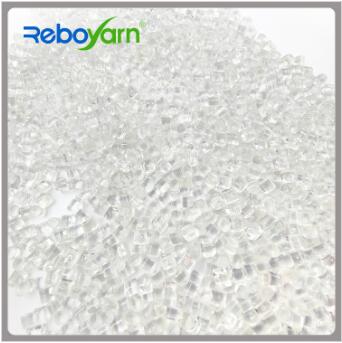What quality control measures are in place to ensure the consistency and purity of recycled polyester chips?
2023-10-18
Quality control measures for recycled polyester chips are essential to ensure their consistency and purity, which in turn ensures that these chips meet the required standards and specifications for various applications. The specific quality control measures may vary among manufacturers and recycling facilities, but they generally include the following:
1. Source Material Inspection:
- Material Selection: Careful selection of source materials is crucial. This involves inspecting incoming polyester waste materials to ensure they meet the necessary criteria, such as being free from contaminants and impurities.
2. Sorting and Cleaning:
- Contaminant Removal: Effective sorting and cleaning processes are employed to remove contaminants such as labels, adhesives, dirt, and foreign materials from the collected polyester waste.
3. Testing and Analysis:
- Material Testing: Samples of the collected materials are tested and analyzed to assess their composition, quality, and suitability for recycling.
- Contaminant Analysis: Advanced analytical techniques, such as spectroscopy or microscopy, may be used to detect and quantify contaminants and impurities.
4. Grinding and Size Reduction:
- Mechanical Processing: The source materials are mechanically processed to reduce them to a suitable size (flakes or granules) for further processing.
5. Extrusion and Melt Filtering:
- Extrusion Process: The material is melted and extruded to form a continuous strand, during which impurities are often filtered out to improve purity.
6. Solidification and Cutting:
- Cooling and Solidification: The molten strand is rapidly cooled and solidified to form a solid polyester strand or sheet.
- Cutting: The solidified strand is cut into smaller chips, which are the final product. Quality control checks are conducted during this process to ensure consistency in chip size and shape.
7. Material Testing at Key Stages:
- Intermediate Testing: Quality control checks are performed at various intermediate stages of the process to identify and address any issues promptly.
8. Quality Assurance:
- Quality Management Systems: Many recycling facilities implement quality management systems (e.g., ISO 9001) to maintain consistency and ensure compliance with established standards and specifications.
9. Traceability and Documentation:
- Record-Keeping: Comprehensive documentation of the entire recycling process, including the source materials, processing steps, and quality control results, is essential for traceability and quality assurance.
10. Sampling and Testing Protocols:
- Sampling Plans: Rigorous sampling plans and protocols are developed to ensure representative samples are tested for quality control purposes.
- Testing for Purity: Recycled polyester chips are routinely tested for purity, ensuring that contaminants and impurities remain within acceptable limits.
11. Certification and Compliance:
- Third-Party Verification: Some recycling facilities seek third-party verification and certification to demonstrate compliance with industry standards and regulations.
12. Feedback and Continuous Improvement:
- Feedback Loops: Recyclers often have mechanisms in place to collect and act on feedback from customers and partners, making adjustments and improvements to their processes.
13. Employee Training and Expertise:
- Skilled Workforce: Having a skilled and trained workforce is essential for ensuring that quality control measures are consistently applied throughout the recycling process.
14. Regulatory Compliance:
- Environmental and Safety Compliance: Facilities adhere to environmental and safety regulations to minimize environmental impact and ensure safe working conditions.
15. Product Testing and Certification:
- Product Testing: Finished recycled polyester chips may undergo further testing to meet industry-specific standards and certifications related to their intended applications.
These quality control measures help ensure the consistency, purity, and overall quality of recycled polyester chips, making them suitable for a wide range of applications, from textiles and apparel to automotive components and packaging materials. Manufacturers and recycling facilities often take pride in their commitment to producing high-quality recycled materials that contribute to sustainability and circular economy goals.



